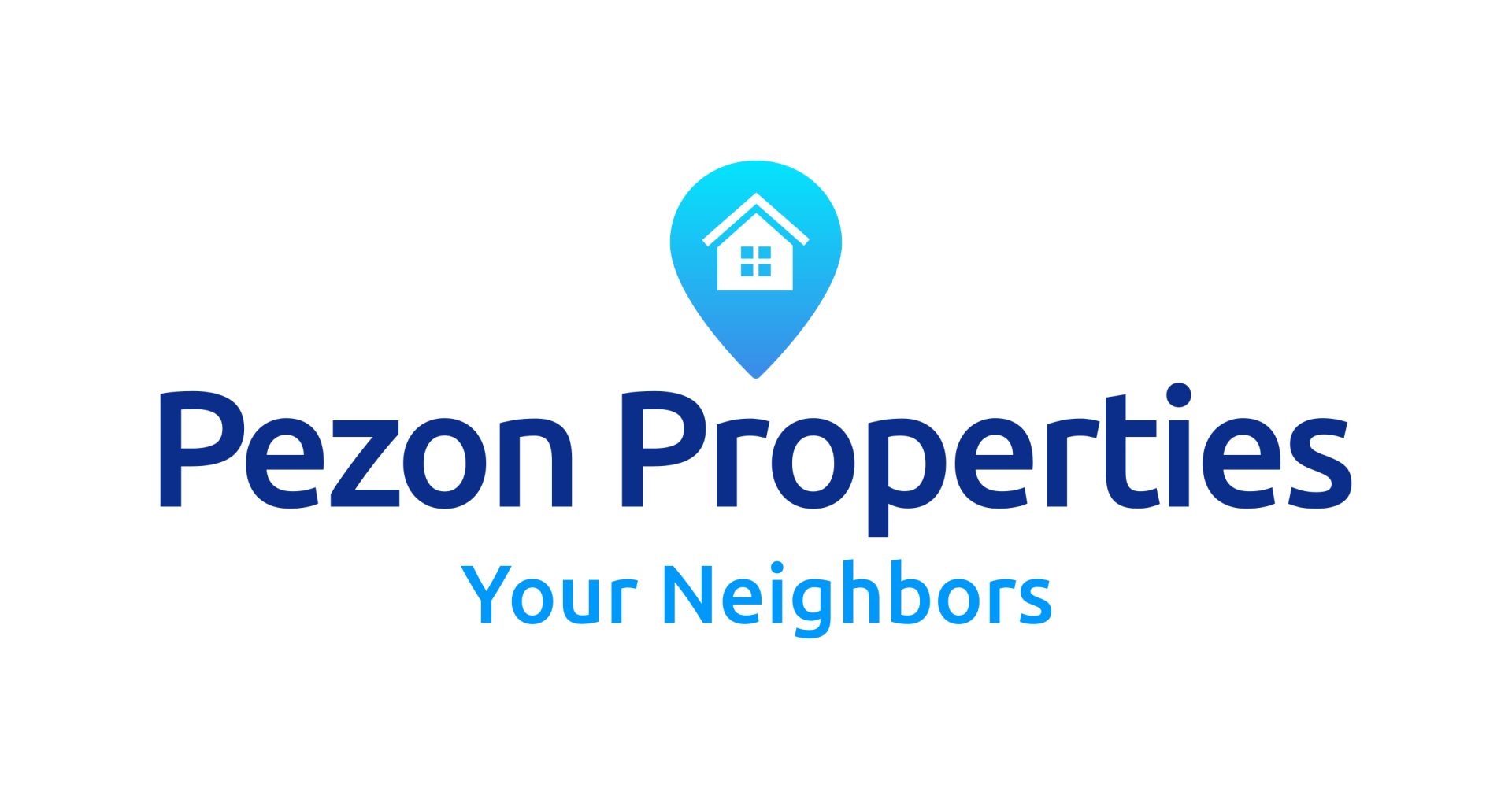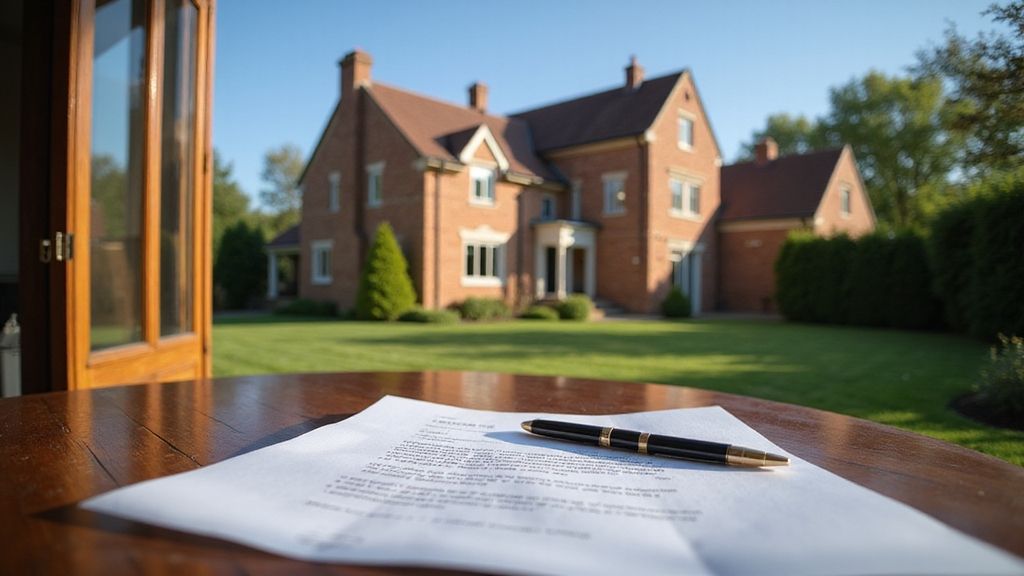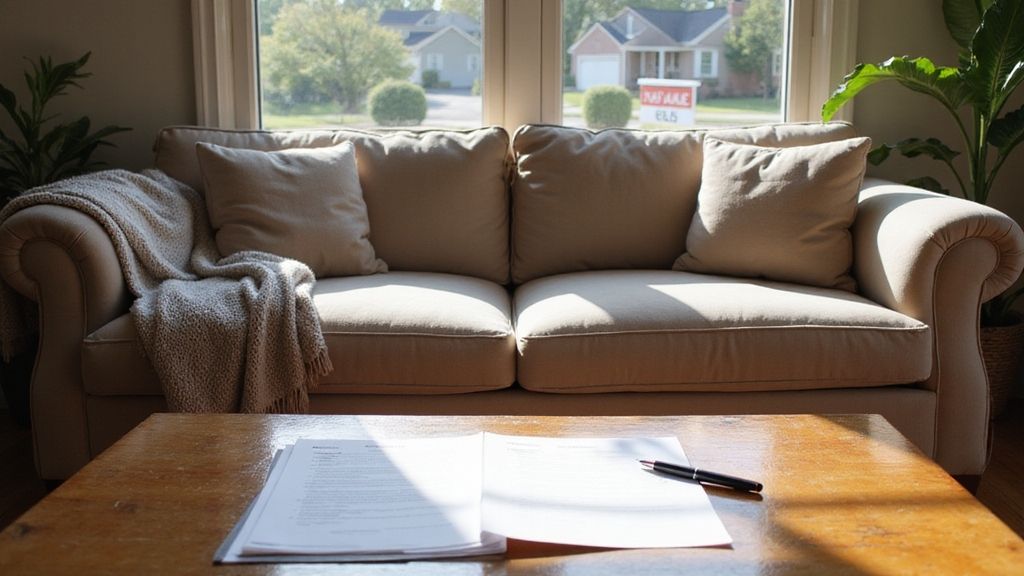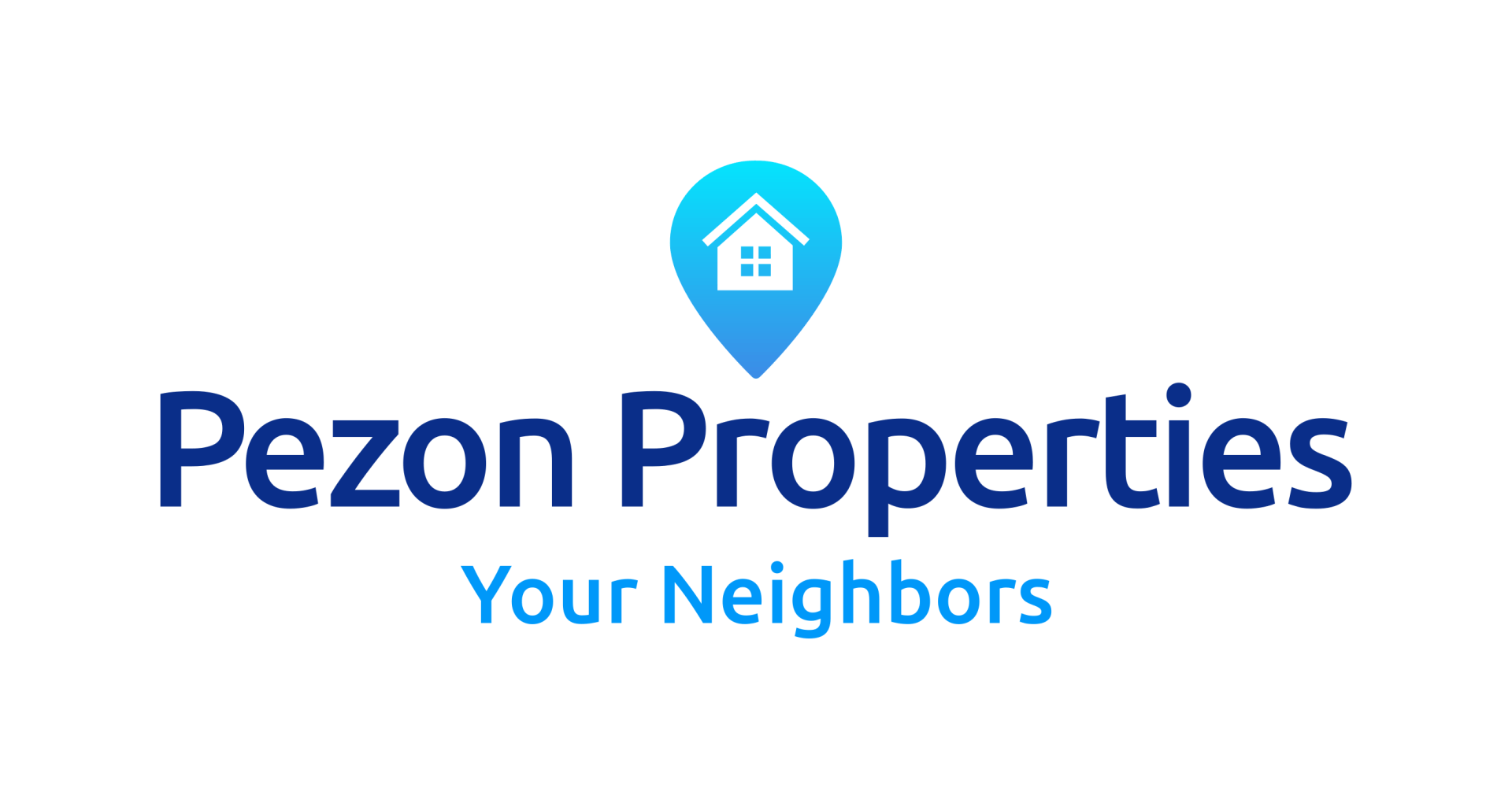How to Sell a House With a Mortgage

Homeowners often feel overwhelmed by the complexities of the mortgage process when selling their houses. The presence of an existing mortgage adds another layer of complications. Homeowners worry about paying off their remaining loan balance.
They also struggle to understand how to transfer the property to new owners. This situation can cause stress and confusion for those looking to sell.
Many sellers find themselves in a bind when trying to navigate this process. They fear making costly mistakes that could jeopardize the sale. The thought of dealing with banks and potential buyers simultaneously is intimidating.
Sellers may also worry about timing issues between selling and paying off the mortgage. These concerns can lead to sleepless nights and constant anxiety. The pressure to get everything right can be overwhelming for inexperienced sellers.
Fortunately, there are clear steps that homeowners can follow to sell a mortgaged property. Understanding the process can alleviate much of the stress associated with selling. Proper planning and guidance can make the transaction smoother for all parties involved.
Sellers can learn to manage their mortgage payoff and coordinate with buyers effectively. With the right approach, selling a house with a mortgage becomes much more manageable.
This blog post will guide you through the process of selling a mortgaged house. You'll learn practical steps to navigate this complex transaction successfully.
Understanding Your Current Mortgage Situation
Before selling your house with a mortgage, it’s essential to understand your mortgage situation. This knowledge helps you make informed decisions during the selling process.
Start by contacting your lender for a payoff statement. This document shows your current mortgage balance and any fees for early repayment. Your outstanding mortgage amount may vary from what appears on monthly statements due to interest and other factors.
Next, review your mortgage terms. Look for clauses about selling your property or paying off your mortgage early. Some loans may have prepayment penalties or specific requirements for transferring the loan.
Calculate your home equity by subtracting your mortgage balance from your property’s estimated market value. This amount indicates how much money you could receive after the sale. If you have negative equity, where you owe more than your home’s worth, consider how to cover the difference.
Understanding your mortgage also means being aware of your monthly payment obligations. You must continue these payments until the sale is complete. Factor this into your timeline and budget as you prepare to sell.
What Is Your Home’s Current Market Value?
Determining your home’s current market value is essential when selling a house with a mortgage. Knowing your property’s worth helps ensure you can pay off your mortgage and possibly earn a profit.
To find your home’s value, start by researching recent sales of similar properties in your area. Focus on homes with comparable features, size, and location for an accurate estimate. Online valuation tools can provide insights, but they may not be as reliable as professional appraisals.
Consider hiring a licensed appraiser or real estate agent for a detailed valuation. They’ll evaluate your home’s condition, upgrades, and local market trends. Their professional assessment will help you understand your home’s worth and set a realistic asking price.
After estimating your home’s value, compare it to your current mortgage balance. If your home is worth more than your outstanding mortgage, you’re in a favorable position to sell. If the value is less than what you owe, you may need to explore options like a short sale or cover the difference in cash at closing.
Market conditions can shift rapidly, so stay informed about local real estate trends. Regularly reassess your home’s value, especially after significant improvements or changes in your neighborhood.
Can You Sell a House With an Existing Mortgage?
Absolutely, you can sell a house with an existing mortgage. This situation is common among homeowners, and the process is quite simple.

First, you need to get a payoff statement from your lender. This document shows the total amount needed to pay off your mortgage, including any fees.
When deciding on a sale price, make sure it covers your mortgage balance and other costs. If your home has enough equity, you may make a profit. However, if you owe more than your home is worth, you might need to pay the difference.
Hiring a solicitor is advisable to manage the legal paperwork. They’ll ensure everything is completed correctly during the closing process. Once the sale is complete, the proceeds will first go to your mortgage lender, and any leftover funds will come to you.
If you plan to buy another property, consider porting your mortgage. This can save you time and money by avoiding new financing. Throughout the selling process, you must continue making mortgage payments until the sale closes.
Conduct market research to price your home competitively and attract buyers. With careful planning and professional help, selling a house with an existing mortgage can be a smooth experience.
Calculating Your Mortgage Payoff Amount
To calculate your mortgage payoff amount, obtain a payoff statement from your lender. This document shows the exact amount needed to settle your mortgage, which often differs from your remaining balance.
The payoff amount includes the principal balance, accrued interest up to the payoff date, and any fees or prepayment penalties. Request this statement close to your sale date, as the amount changes daily due to interest.
Once you receive the payoff statement, review it carefully for discrepancies. If you find any errors, contact your lender right away to resolve them.
Your payoff amount may be higher than expected due to interest that has accrued since your last payment. Some lenders may charge a fee for providing the payoff statement or processing the payoff.
When setting your home’s sale price, include closing costs and real estate agent commissions. Aim for a sale price that covers these expenses plus your mortgage payoff amount.
If you sell your home before the mortgage term ends, be aware of potential prepayment penalties. These fees can affect your payoff amount, so check your mortgage agreement or consult your lender about any charges.
How Much Equity Do You Have in Your Home?
Your home equity is vital when selling a house with a mortgage. It represents the difference between your home’s market value and your mortgage balance. Knowing your equity helps you make informed selling decisions.
To calculate your home equity, find your home’s current market value and remaining mortgage balance. You can get a professional appraisal or conduct a comparative market analysis to estimate your home’s worth. Then, check your latest mortgage statement or contact your lender for the outstanding balance.
Subtract the remaining mortgage from your home’s estimated value to find your equity. For instance, if your home is worth $300,000 and you owe $200,000, you have $100,000 in equity. Understanding this figure is key when setting your sale price and assessing your financial situation.
If you have significant equity, you’re well-positioned to sell. You may have enough funds to pay off your mortgage and make a profit. Conversely, if your equity is minimal, you might need to cover the remaining mortgage and selling costs out of pocket.
In cases of negative equity, where you owe more than your home’s worth, selling can be complex. You may need to explore options like a short sale or paying the difference.
Carefully consider these choices and consult financial professionals to make the best decision for your circumstances.
Common Challenges When Selling a Mortgaged Home
Selling a home with a mortgage can be challenging. One major issue is negative equity. This happens when your mortgage balance is more than your home’s current market value. In this case, you may need to pay the difference yourself or negotiate a short sale with your lender.
Another challenge is timing the sale with your mortgage payoff. You must get an accurate payoff statement from your lender. Ensure the sale price covers this amount, plus any fees. If your mortgage has a prepayment penalty, include this cost in your calculations.
Market conditions can also affect your sale. In a buyer’s market, it may be hard to sell your home for a price that covers your mortgage. This is especially true if you recently bought the property and have little equity.
While your home is on the market, you must keep making mortgage payments. This can strain your finances, particularly if you’re trying to buy a new property.
Traditional vs Quick Sale: Which Option Is Right for You?
When deciding to sell your mortgaged home, you can choose between a traditional sale and a quick sale. Each option has its pros and cons, so it’s important to determine which one suits your needs.
A traditional sale means listing your house on the market, often with a real estate agent. This method can lead to a higher sale price, allowing for greater potential profits. You have more control over the process, including setting your asking price and negotiating with buyers.
However, traditional sales can take months to finalize. During this time, you’ll continue making mortgage payments. Additionally, you may need to prepare your home for viewings and pay agent commissions.
In contrast, a quick sale provides a faster way to sell your house. Companies specializing in quick sales can often complete transactions in weeks. This option is ideal if you need to sell quickly due to financial issues or relocation.
While you may receive less than market value, the speed of the sale can help you avoid ongoing mortgage payments and other costs. Quick sales also typically allow you to sell your home “as-is,” without the need for repairs or staging.
When choosing between these options, think about your timeline, financial situation, and your home’s condition. If you have equity and can wait for the best offer, a traditional sale might be best.
However, if you face financial issues or need to move quickly, a quick sale could be the right decision to settle your mortgage and receive funds fast.
Preparing Your Mortgaged Home for Sale
How can you maximize your home’s appeal when selling with a mortgage? Preparing your mortgaged home for sale requires careful planning. Start by contacting your mortgage lender for a payoff statement. This document helps you determine the minimum sale price needed to cover your mortgage balance.
Next, enhance your property’s curb appeal. A well-kept exterior makes a great first impression. Trim bushes, mow the lawn, and consider painting the front door. Inside, declutter and depersonalize your space. This allows buyers to envision themselves living there.
Make necessary repairs and updates to boost your home’s value. Fix leaky faucets, replace worn carpets, and update old light fixtures. Minor kitchen and bathroom renovations often provide good returns on investment.
During the selling process, be ready for showings and open houses. Keep your home clean and tidy at all times. You never know when a potential buyer might want to view it.
Pricing your home competitively is essential. Research similar properties in your area and consult a real estate agent for fair market value. Remember to factor in your mortgage balance and any associated fees in your pricing strategy.
What Documents Do You Need to Sell?
When selling a house with a mortgage, you need several important documents. Gathering these papers is crucial for a smooth transaction and to pay off your existing mortgage.
Start with a payoff statement from your lender.
This document shows your outstanding mortgage balance and any fees. You’ll use this to see how much of the sale proceeds will pay off your loan.
Next, collect your recent mortgage statements. These show your loan’s current status and payment history. You’ll also need your original loan documents, like the promissory note and deed of trust.
Gather your property tax records and homeowners insurance policy. These documents show you have met your financial responsibilities. Additionally, include any paperwork related to home improvements or renovations you have made.
If you have refinanced your mortgage, include those documents as well. They detail your loan’s current terms and any changes since the original agreement.
Prepare a copy of your home’s title report. This confirms your ownership and reveals any liens or encumbrances. If you belong to a homeowners association, have those documents ready too.
Understanding the Closing Process
The closing process is the final stage of selling your home with a mortgage. It involves all financial transactions and legal transfers necessary to complete the sale. During this phase, you’ll finalize the sale and pay off your current mortgage.
As the seller, be ready for several important steps. First, you’ll sign documents that transfer property ownership to the buyer. Your real estate agent or solicitor will assist you with the paperwork, ensuring everything is correct.
Next, the sale proceeds will pay off your mortgage balance. This is where the payoff statement you obtained earlier is important. The amount owed will be deducted from the sale price, along with any fees or penalties for early repayment.
If there’s money left after paying off the mortgage, it will be given to you. This amount represents your equity or profit from the sale. However, if the sale price is less than the mortgage balance, you’ll need to cover the difference.
Throughout the closing process, maintain communication with your lender, real estate agent, and solicitor. They’ll inform you of any last-minute requirements or issues that may arise.
How Long Does It Take to Sell a Mortgaged Home?
After learning about the closing process, you might question how long it takes to sell a mortgaged home. The timeline can vary, but it usually takes about 2 to 3 months from listing to closing.

To sell your home quickly, price it competitively based on market research. A well-priced home attracts more buyers, which can shorten the time on the market. Keep in mind that you must continue making mortgage payments until the sale is complete, so a quicker sale can save you money.
The closing process typically lasts 30 to 45 days. During this time, you’ll work with your solicitor on legal matters and paperwork. The buyer’s lender will conduct appraisals and inspections, which can add to the timeline.
Several factors can extend the selling process:
- Market conditions: A buyer’s market may lead to longer selling times.
- Property condition: Homes needing repairs may take longer to sell.
- Mortgage type: Some mortgages have specific requirements that can slow things down.
- Buyer’s financing: Cash buyers usually close faster than those needing loans.
To speed up the sale, ensure all necessary documents are prepared, including your payoff statement. Respond promptly to buyer inquiries and be flexible with showings. Consider working with an experienced real estate agent to navigate the process effectively.
Tips to Speed Up Your Home Sale
Selling your home quickly saves money and reduces stress. If you have a mortgage, time is crucial. Start by pricing your home competitively. Research the local market and set an appealing price that covers your mortgage and fees.
Next, enhance your home’s curb appeal. First impressions count, so invest in quick landscaping and minor repairs. Inside, declutter and depersonalize to help buyers imagine living there.
Consider hiring a professional photographer. High-quality images showcase your home’s best features and attract online interest. Be flexible with viewing times to accommodate potential buyers.
Work with an experienced real estate agent familiar with the local market. They can help you navigate the selling process and negotiate effectively.
Prepare all necessary paperwork in advance, including your mortgage payoff statement. This will streamline the closing once you find a buyer. If you’re buying a new home, look into porting options for your existing mortgage to avoid delays.
Avoiding Common Mistakes When Selling
Selling your home quickly is important, but avoiding common mistakes is crucial. If you have a mortgage, being aware of potential pitfalls can save you time, money, and stress.
One frequent error is misjudging your home’s value. Overpricing can extend your listing time. Underpricing may leave you short on funds to pay off your mortgage. Conduct market research or consult an appraiser to set a competitive price.
Another mistake isn’t obtaining an accurate payoff statement from your lender. This document shows the exact amount needed to settle your mortgage, including fees or penalties. Without it, you may miscalculate your home equity and potential proceeds.
Failing to disclose known issues with your property can lead to legal problems. Be transparent about any defects or repairs needed. This honesty builds trust with buyers and prevents complications later.
Don’t forget to include closing costs and real estate agent fees when estimating your profits. These expenses can significantly affect your bottom line, especially with limited equity.
Sell Your Mortgaged Home Fast with Pezon Properties
At Pezon Properties, we understand that homeowners with mortgages often need a quick sale. If you find yourself in this situation, we provide a fast and efficient way to sell your home. We can help you navigate the selling process while fulfilling your financial obligations.
Our team understands the challenges of selling a home with an outstanding mortgage and will guide you through each step.
First, we'll help determine your mortgage balance by obtaining a payoff statement from your lender. This information allows you to set a realistic sale price that covers your mortgage and any fees.
Next, we'll assess your home's market value. We'll create a competitive pricing strategy to attract buyers quickly. Our experts handle all paperwork and negotiations, saving you time and stress.
If you're worried about negative equity, we can explore options to help settle your mortgage balance. We may suggest short sales or assist in negotiations with your lender.
Throughout the process, we keep you updated on your mortgage responsibilities. We work diligently to close the sale quickly, allowing you to move forward without the burden of your mortgage.
At Pezon Properties, we buy houses directly from homeowners. This means you can avoid foreclosure by working with us. We purchase houses as-is, without any fees, in Pennsylvania areas like Back Mountain, Abington, Allentown, and other popular parts of PA. By selling to us, you can skip the hassle of repairs and traditional real estate transactions.
Conclusion
Selling a house with a mortgage can be straightforward. You have options to consider, and with careful planning, you can make the process easier. First, know your mortgage balance, home value, and equity. This information is crucial for pricing your home correctly.
If you need assistance, reach out to real estate professionals. They can provide valuable insights and support. By following the steps in this guide, you’ll be ready to sell your home confidently. Best of luck with your sale!
Give us a call anytime at 484-484-0971 or fill out this quick form to get started today!
Get A Fair Cash Offer On Your House

About the author
Mathew Pezon
Mathew Pezon is the founder and CEO of Pezon Properties, a cash home buying company located in Lehigh Valley, Pennsylvania. With several years of experience in the real estate industry, Mathew has become a specialist in helping homeowners sell their properties quickly and efficiently. He takes pride in providing a hassle-free, transparent, and fair home buying experience to his clients. Mathew is also an active member of his local community and is passionate about giving back. Through his company, he has contributed to various charities and causes.















